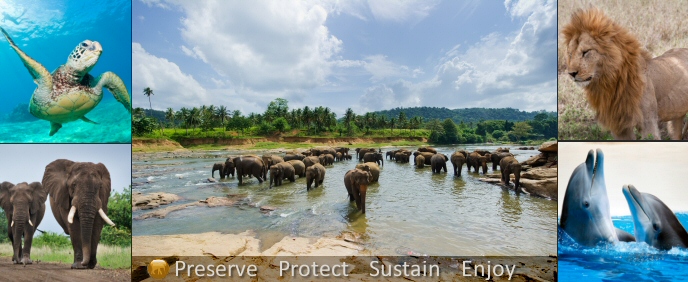
African Safaris - Sustainable Tourism & Conservation Laws
The laws governing the practice of safari in Africa are extremely broad, reflecting the diverse beliefs and governing structures of the many countries that comprise the continent. Since there are many countries in Africa that are under a seemingly constant state of social and governmental unrest, there are surely places that should be avoided by the casual ecotourist. However, tourists planning on undertaking a safari adventure during their African trip will find a number of countries that are very receptive to assisting them.
Due to the inconsistencies in attitudes toward foreign tourists across Africa, it would be impossible to give a genuine and accurate accounting of "general" African policies toward the environment or ecotourism. It is therefore much more reasonable to identify one or more countries that are most accepting of western tourism, and then explore the laws of those countries. On the whole, the country which shows the largest desire to infuse its economy with foreign tourist dollars is Kenya. Not only does Kenya have a large number of safari companies that operate within its borders, but it also has some of the most modern game laws in the entire African continent.
The Kenyan Ministry of Tourism has been one of the primary proponents of making Kenya more accessible to foreign visitors. They have also made it much easier for local villagers to enter into agreements with safari companies to lease their lands for use in safaris. This simple reality is what makes Kenya both a desirable safari locale and an environmental trendsetter in the region. By allowing local villages the right to negotiate land use with safari companies, the Kenyan Ministry of Tourism has ensured that these villages have a voice when it comes to how their local resources are used. Since local farmers and hunters use these safari areas for cattle grazing and hunting, the land is very important to them. The result is that when these land use deals are made, there are a significant amount of protective measures for wildlife and habitat. Also, the use of these lands brings money into the local economies of these villages, helping them to gain greater access to necessities. All of this comes together to create a net gain for people, habitat, and wildlife. Some of these villages encourage non-lethal safari trips, where visitors come armed with cameras instead of guns. As international interest in African wildlife has turned more toward observing than hunting, these non-lethal safaris have become very popular.
By contrast, countries like the Democratic Republic of the Congo are known for their less standardized approach toward wildlife and tourism. Much of this attitude is the result of the damage caused by very recent wars fought in the country and the crippling economic situation there. Since the Democratic Republic of the Congo is home to some of the rarest endemic species of primates on Earth, there is a large underground market for poachers that has had a devastating impact on the wildlife and habitat. Either paramilitary groups run illegal safaris for endangered animals, or economically starved villages facilitate equally illegal safaris. It is indeed possible to go on a completely legal safari there, but it requires much more work and know-how than taking your business to countries with more developed policies in regard to the environment. In truth, going on a lethal or non-lethal safari in African countries that do not have well developed wildlife and environmental policies can have an overall negative effect on the area.
Going on safari in Africa is an iconic experience that-- to many-- embodies the spirit of what it means to visit Africa. While a safari can be an amazing way to see and feel this beautiful continent, it's important to take into account the various mitigating factors that may make one destination better than another. Some areas of Africa have a perfect storm for rampant misuse: lax governmental policy, lax enforcement of laws, and extremely rare animal species. On the other hand, there are places in Africa that do have a highly developed system of laws in place to protect the natural world. With a little bit of research, it isn't too difficult to figure out which category your prospective destination falls into.

